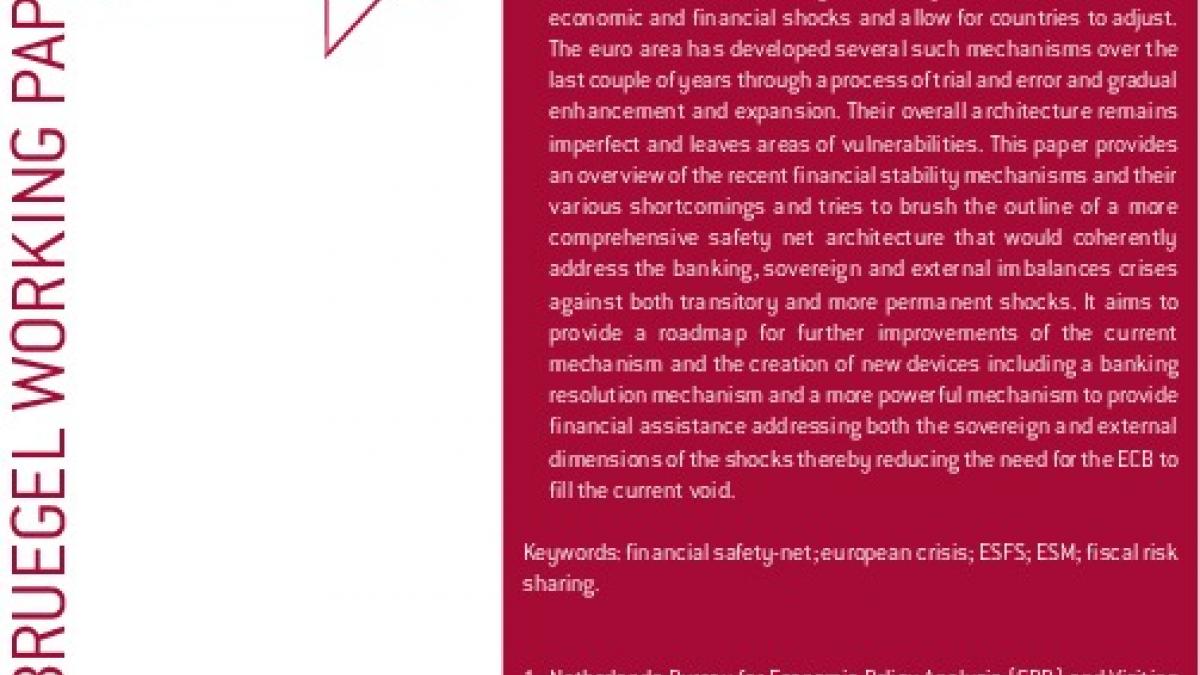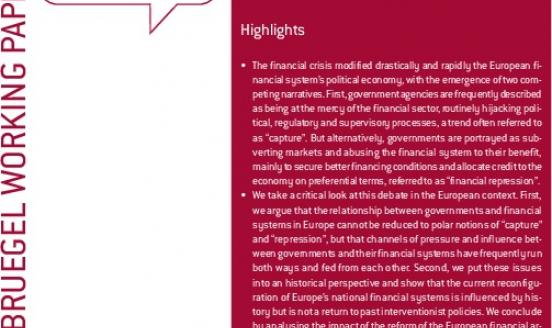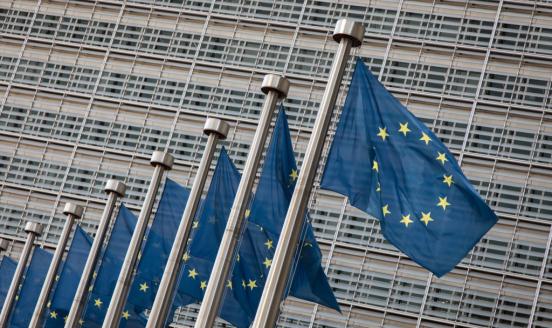The creation of euro area financial safety nets
This paper provides an overview of the recent financial stability mechanisms and their various shortcomings and tries to brush the outline of a more

The financial crisis has exposed the need to devise stronger and broader international and regional safety nets in order to deal with economic and financial shocks and allow for countries to adjust.
The euro area has developed several such mechanisms over the last couple of years through a process of trial and error and gradual enhancement and expansion. Their overall architecture remains imperfect and leaves areas of vulnerabilities. This paper provides an overview of the recent financial stability mechanisms and their various shortcomings and tries to brush the outline of a more comprehensive safety net architecture that would coherently address the banking, sovereign and external imbalances crises against both transitory and more permanent shocks. It aims to provide a roadmap for further improvements of the current mechanism and the creation of new devices including a banking resolution mechanism and amore powerfulmechanismto provide financial assistance addressing both the sovereign and external dimensions of the shocks thereby reducing the need for the ECB to fill the current void.


